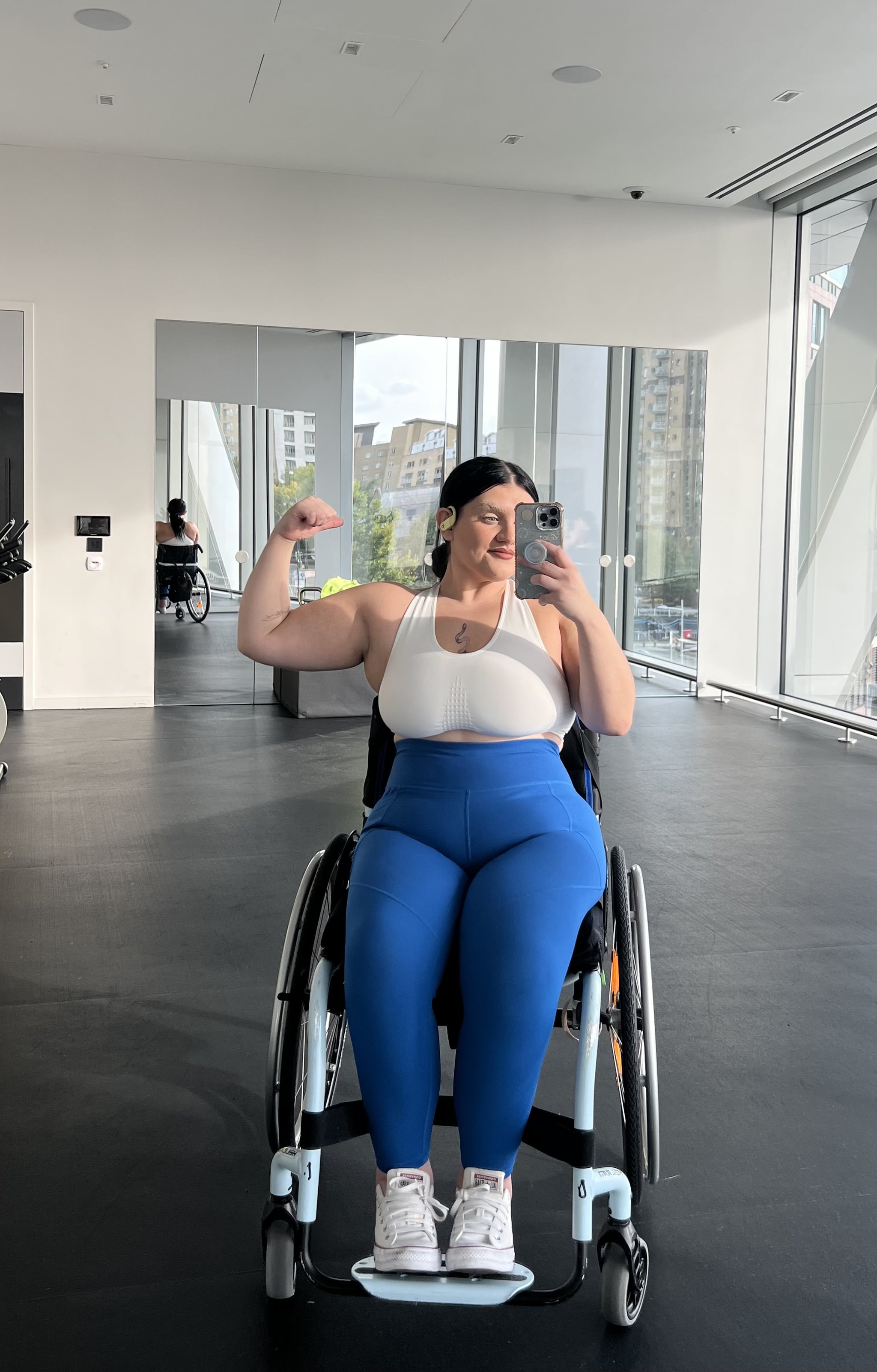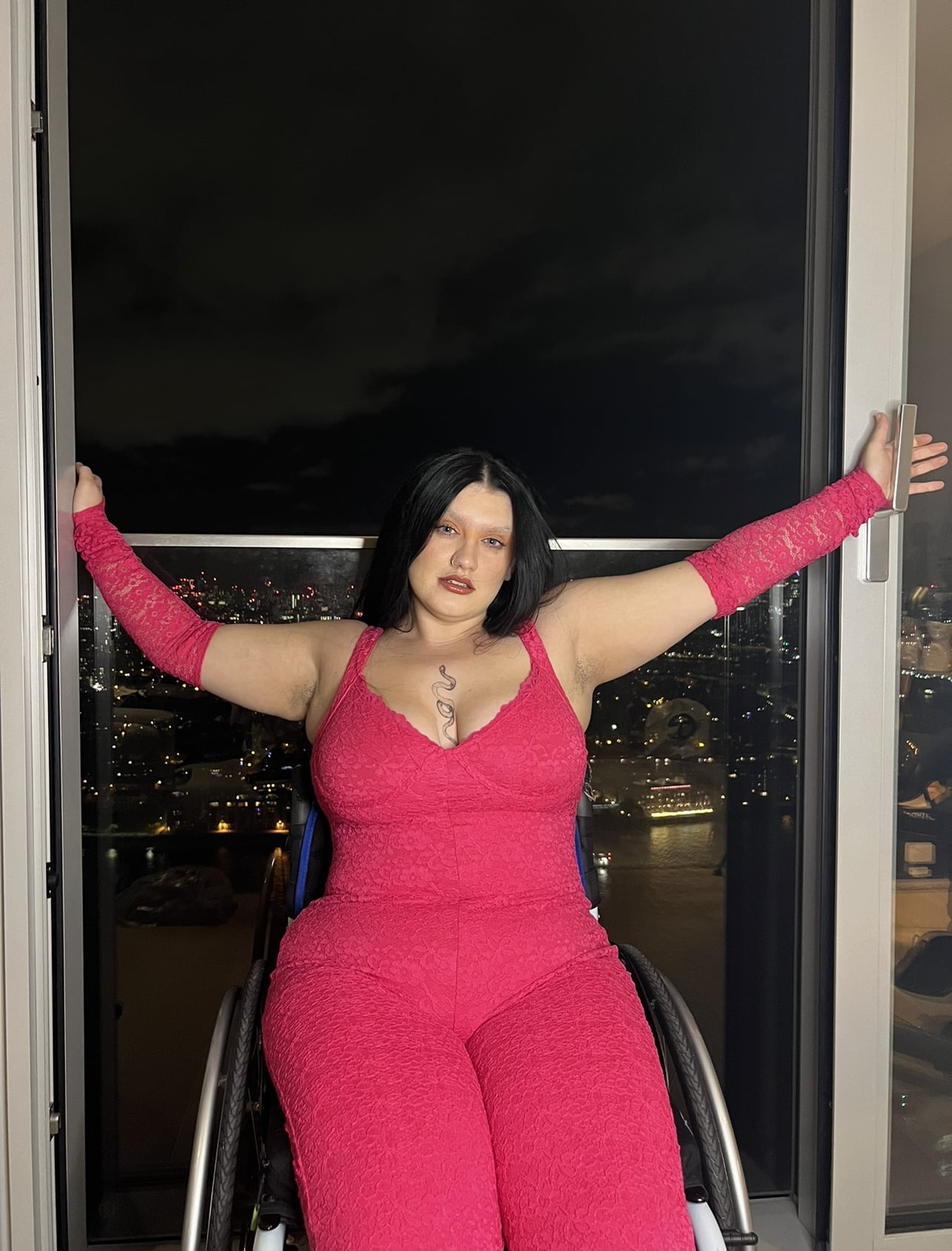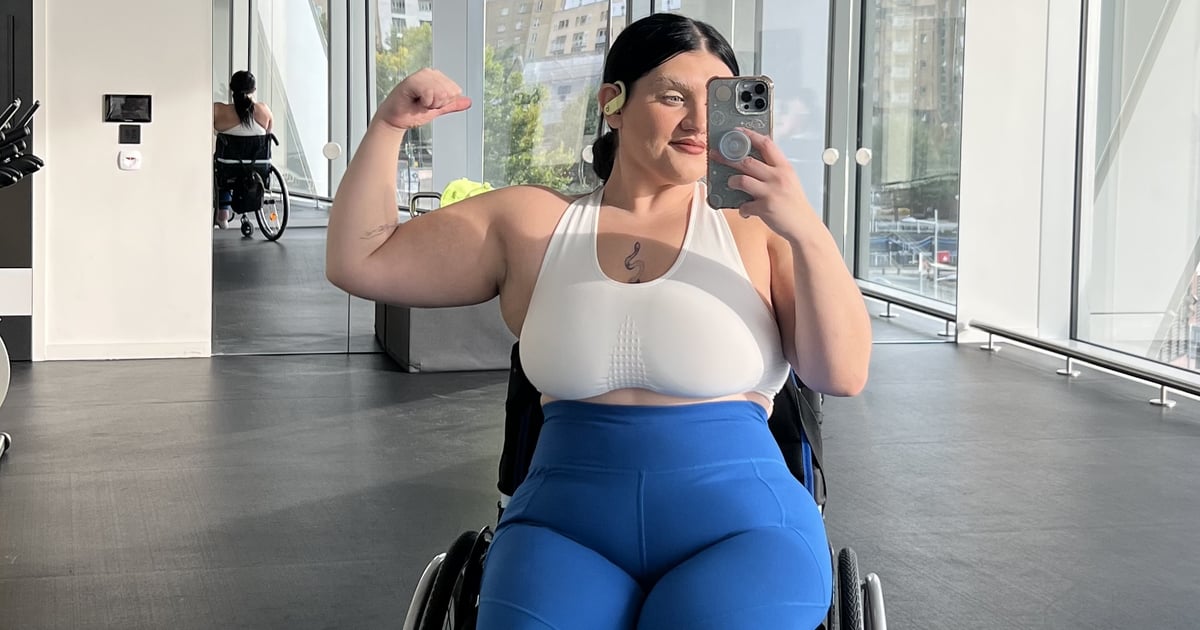
It’s Sophie Butler’s world, and we’re just living in it. The fitness influencer is unapologetically living her best life in London since she moved to the city a year ago. But before that, she’d already made quite the name for herself as an activist, tearing barriers down when it comes to disability representation. The self-professed “disabled and queer queen” was named Cosmopolitan’s influencer of the year in 2021 and has amassed over 120,000 followers on Instagram, where she raises awareness for the disabled community all while showcasing an incredible array of showstopping ‘fits and beauty tutorials. She’s one of the first Gymshark ambassadors with a disability, and she was recently featured on the “Power Hour” podcast with Adrienne Herbert.
Those who have been following Butler for some time know her story: about five years ago, the content creator, 21 at the time, was doing squats on the Smith machine when she fell, and a 70-kilogram weight (about 154 pounds) impacted her back, leaving her paralyzed from the waist down. After Butler recovered from surgery, she grappled with depression and PTSD. But eventually, she chose to return to the gym in a bid to restart her fitness journey, both mentally and physically.
“In order for people to think you can have a fulfilling, joyful life as a disabled person, we need to see it.”
This meant that Butler had to relearn how to use workout equipment as a full-time wheelchair user. Ultimately, much of the fitness guru’s workouts have stayed similar since recovering from her accident, with Butler incorporating weighted workouts for her arms, back, chest, shoulders, and physiotherapy, and a newly acquired wheelchair treadmill for cardio fitness. But the intentions behind her workouts have shifted.
“I would say the biggest shift that I had really is being able to look at my body more as an instrument or a vessel that carries me through life,” she tells POPSUGAR of her body-neutral outlook. “So now, I look at it functionally . . . Maybe before my injury I would be really self-critical and really look at it more as an object rather than a vessel.” She adds: “I’m like, ‘Your body has been through so much and it’s had to adapt and work in a way which, evolutionary, is not meant to. But look how strong you are. Look at all these things you can still do.'”

“I think the reasons behind why I do [workouts] are different,” Butler notes. “I think when I was at university, I would sometimes skip social gatherings when I was getting into the gym. I used to restrict myself a little bit and it used to be motivated because I wanted to look good. Whereas now, I still go to the gym. But if someone’s like, ‘Hey, we’re doing this thing, do you want to come?’ that’s also important. If you’re really depriving yourself of those relationships and social interactions, that’s not healthy either.”
Inclusivity is undoubtedly Butler’s main driver and something she continues to strive for. In late 2022, she launched The Other Girls Club, a community who meet via various pop-up events across the UK to discuss pop-culture-worthy moments (hello, Taylor Swift lyric theories!). Everyone is welcome, regardless of gender, ability, or anything else. “I wanted to create a space where disabled people and nondisabled people could come together,” she says.
Recently, Butler’s group took part in an inter-abled dance class in London, which allowed people of all fitness levels and physical abilities to feel the joy of movement and feel seen. “Dance is one of those things where we only really see able-bodied people do it, in most spaces anyway,” she says. “It’s not that disabled people actually are excluded from doing it, but not having that visibility of seeing a wheelchair user or someone with another disability do it, it almost makes you feel like it is not for you. In order for people to think you can have a fulfilling, joyful life as a disabled person, we need to see it.”
Butler is continuing to fly the flag for positive representation, and the world is all the better for it.
